Should our youths be concerned with 'other people's politics'?
While there are fears that the support of political causes of other countries could lead to societal tensions and public disorder, Lianhe Zaobao associate editor Peter Ong says that we should not be too critical of youths that participate in seminars discussing wars and oppression, want to learn from one another, speak up on the internet and even parade on the streets. While their fight may be futile and their means not necessarily reasonable, it is oftentimes their sense of justice, sincerity and the fearless display of their youthfulness that should be valued.
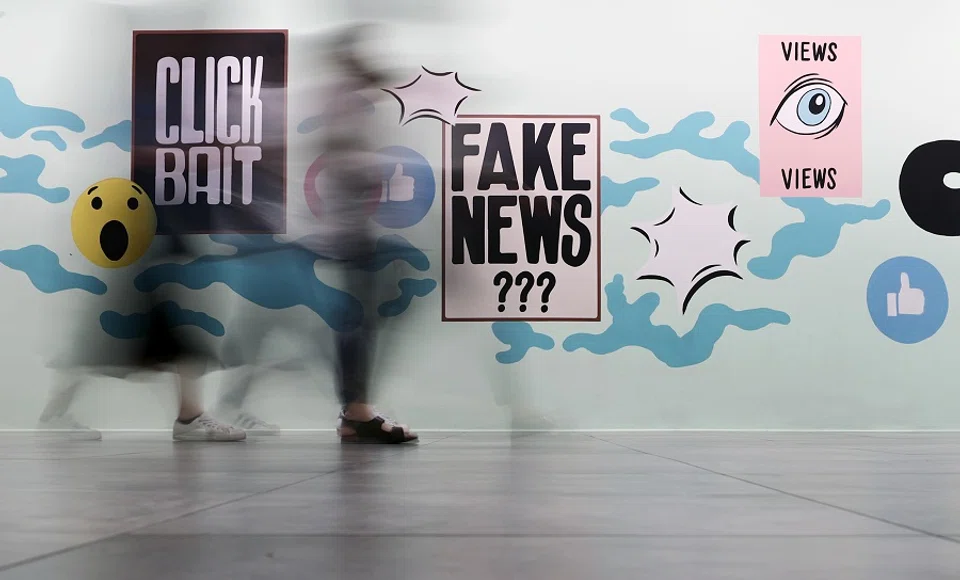
Let us first talk about a funny news video.
Basking in the festive atmosphere of Chinese New Year, a few youths paraded the streets of Singapore in their homemade dragon dance costume, together with another dressed as Caishen (财神, god of wealth), wishing passersby a happy new year.
The incident was rather entertaining and amusing, but at the end of the video, their act was interrupted unexpectedly by a few police officers, maybe to question and investigate the teens for not possessing a public entertainment license. On the same day, however, there was much more serious news of another "street parade".
Serious concerns
Earlier that day, roughly 70 people carrying umbrellas with a watermelon print design were seen marching from Orchard Road towards the Istana. The Palestinian flag is banned in Gaza and the West Bank and cannot be displayed; the red, green, black and white colours of a sliced watermelon match that of the Palestinian flag. Thus, the fruit has become a symbol of Palestinian struggle and solidarity.
It was reported that the police are investigating whether this group of people had violated the law, as it is illegal to participate in a public assembly or procession without a permit. In particular, the report stressed that actions that advocate the political causes of other countries or foreign entities could lead to societal tensions and public disorder.
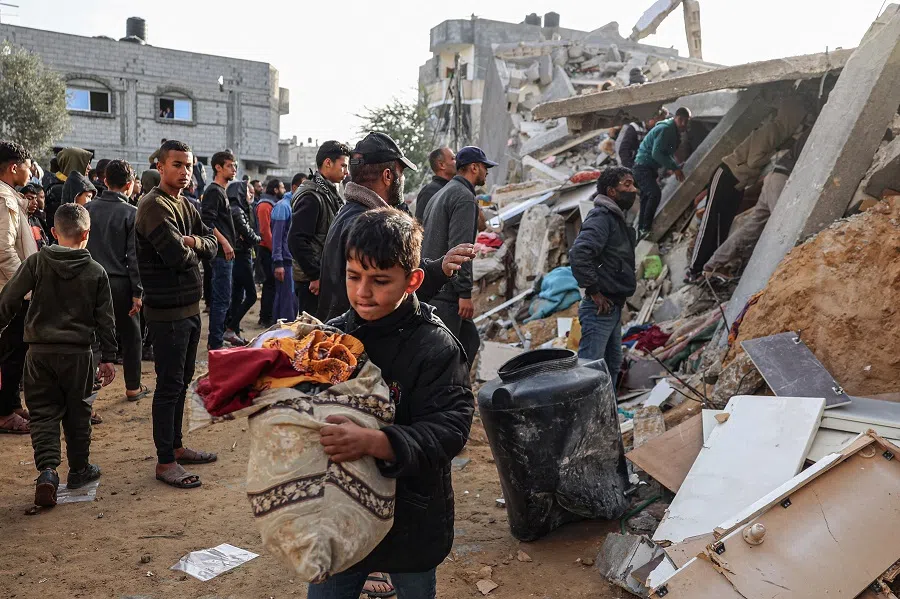
Also being investigated is another online video of a private event where a participant was seen chanting "from the river to the sea", and others chiming in. "From the river to the sea" is a slogan for the destruction of Israel and the Jews and the liberation of Palestine. Similarly, the police said that doing so could lead to racial tensions and may be an offence.
A few days later, I was told that students from the National University of Singapore (NUS), Nanyang Technological University and Singapore Management University had taken the initiative to conduct talks discussing the situation in Gaza over the past few months, exploring the background of the conflict and sharing how to deal with fake news.
Frankly speaking, I generally approve of young people having such niche interests or even a bit of restlessness. But I guess relevant authorities would be concerned with the situation and may even have to question some people or submit some reports.
... fault lines still exist even though the foundation of society is no longer as fragile, especially for those who have experienced the early tumultuous years when the country just gained independence.
Anti-killing is different from anti-Semitism
While the room for political expression in Singapore has become much more relaxed in recent years, caution still prevails when it comes to matters of race and religion. This is because fault lines still exist even though the foundation of society is no longer as fragile, especially for those who have experienced the early tumultuous years when the country just gained independence.
Influenced by the ideology of the West's progressive left, most youths are more conscious in responding to racial and religious topics and will not intentionally express discriminative, offensive or hateful speech. They are also aware that any form of anti-Semitism is taboo.
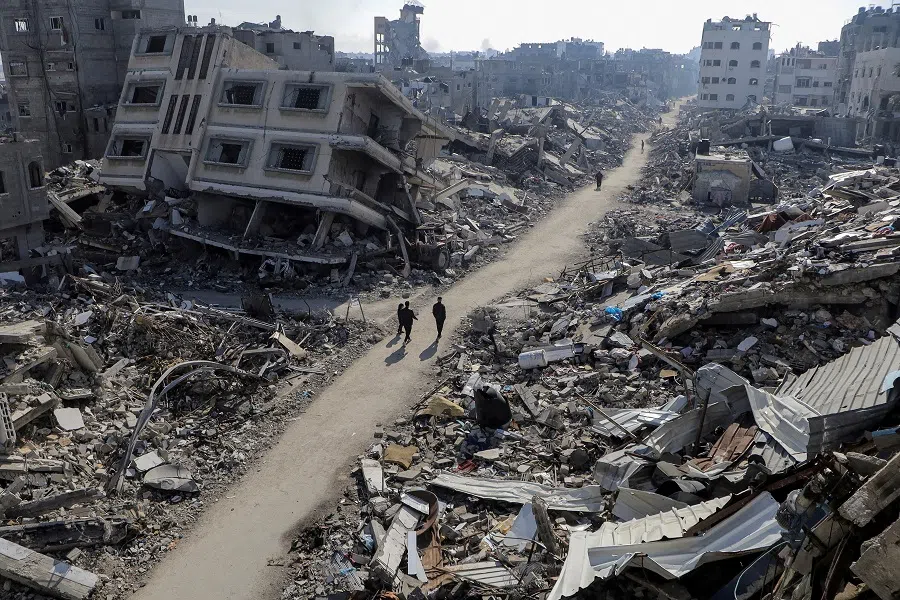
I trust that students possess the ability to handle such situations with discernment, just that they also more firmly and universally pursue values such as anti-war, anti-killing, humanitarianism, man being born free and natural rights.
In other words, when someone oversteps the boundaries and commits war crimes such as attacking even hospitals and refugee camps or committing genocide, isn't speaking up for the vulnerable and persecuted groups the least one can do? Even if one only hears empty echoes in return and can hardly change what is happening or is about to happen in the distance.
Anti-Semitism should indeed be condemned. But the political criticism of the current far-right Israeli regime - including its long history of Palestinian oppression, its rejection of the two-state solution, and its current indiscriminate military action in Gaza - cannot be directly and simply equated to anti-Semitism.
That is, opposing Israeli Prime Minister Benjamin Netanyahu and his Likud Party does not mean one hates Jews. Some people are starting to understand this after repeated explanations, including the liberal Jews who themselves are against using anti-Semitism as a shield to take the moral high ground and do as they please or put people who criticise Israel to shame.
My point is that, in university campuses or on the streets, the people's surge of emotions is mainly targeted at the political actions that they disagree with (whether it is the politics of their own country or that of others) as well as the hypocrisy and unjust positions of some of the major powers involved. It has nothing to do with sensitive racial and religious issues, let alone so-called anti-Semitism.
This is the case with any clear-headed individual: while they utterly detest suicide bombings, they will remind themselves not to tar the whole group with the same brush and fall into Islamophobia.
... individuals who are unable to make the distinction could be incompetent, lacking discernment or even deliberately muddying the waters.
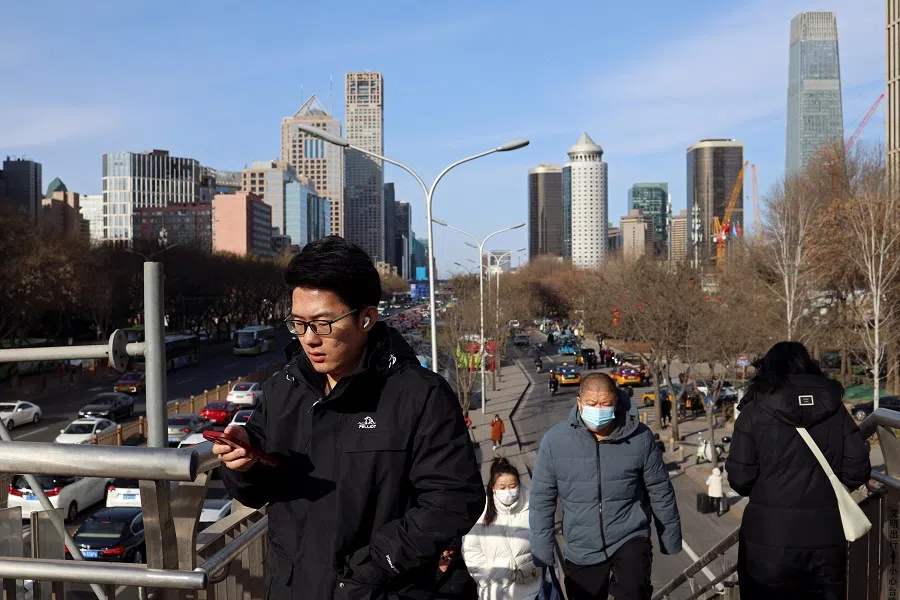
As for Chinese readers, everything will be put in perspective by taking reference from "China as a country, as well as its regime, political party, people and culture". These different concepts can be easily distinguished from one another, with the older generation even having an additional layer of hometown and clan sentiments.
For example, one can disagree with some of Beijing's policies but may not necessarily think that the regime is useless; one can dislike the Chinese Communist Party (CCP) but may not necessarily dislike the country, its people or their hometown. Even in the scope of "cultural China", one may criticise some of its deep-rooted vices, but it does not mean that you will generalise and wholly dismiss it.
In contrast, individuals who are unable to make the distinction could be incompetent, lacking discernment or even deliberately muddying the waters. For example, a Taipei feature story recently published in Zaobao Sunday wrote that some politicians are either anti-mainland China or afraid of mainland China, even wanting to ban TikTok and the "kemusan" dance. Also, when US senators saw Singaporean executive Chew Shou Zi's Chinese facial features, they immediately questioned if he is a Chinese national or even a member of the CCP - this is no longer an inability to discern but "putting up a performance".
Youth activists still a rare breed
Now, we turn our attention back to our youths. I find it commendable that they are compassionate about Gaza and care about the suffering of others despite living in an ivory tower. They are all practitioners of youth activism or about to become youth activists, and yearn to participate in the process of social and conceptual change.
Activism is on the rise around the world, but activists are still a rare breed in Singapore. More people are still obsessed with grades, either studying all day or rushing to their next tuition class.
Understandably, some parents who wish to protect their children do not want them to become curious about politics at a young age, and are especially worried that they will be led astray. In fact, the students' concerns reflect a simple desire for knowledge and truth, which can also be described as a sign of growth. Isn't this far better than being addicted to video games or whining about being unable to secure American singer-songwriter Taylor Swift's concert tickets?
... they were driven by conscience and political belief. I am certain that even after three decades, they would still find comfort in the fact that they "acted" on their beliefs and have no regrets.
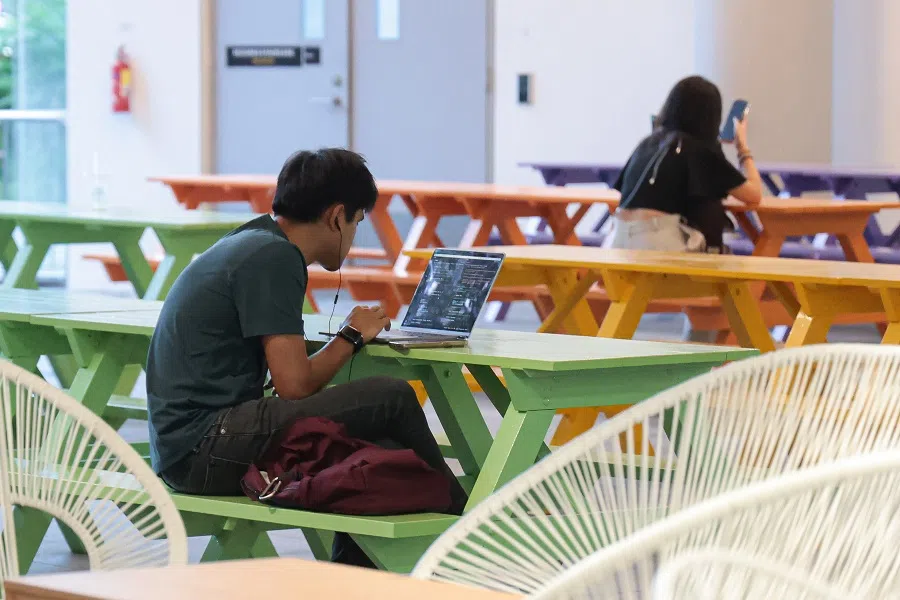
My belief that youths should be exposed to or try to understand politics is somewhat related to my younger years - let me shed some light on this.
When I was young, I had the privilege of listening to the elders recount political movements and even precociously delved into bundles of outdated The 70's (《七十年代》) magazines that were passed down to me. I also became part of an organisation where I learnt red songs and received some lessons on Marxism, philosophy and materialism.
Although I could not fully understand them and only had a superficial knowledge of what was taught, they could be considered a hefty amount of extracurricular knowledge in the 1970s and 1980s when tuition classes were virtually non-existent.
But I was not brainwashed as a result either (even if I had been, in that era, there was no longer any room for a proletariat revolution). In fact, it had the opposite effect - I developed a disdain for the red regime very early on due to scar literature (Chinese literature that emerged in the late 1970s portraying the sufferings of cadres and intellectuals during the Cultural Revolution and the rule of the Gang of Four), the Khmer Rouge incident and films such as The Killing Fields.
In May 1989, I remember walking along the corridor from the arts faculty of NUS to the canteen, past students who had set up tables to collect signatures in support of pro-democracy movements - I left a huge signature.
Shortly after, four youths parading around Orchard Road wearing T-shirts bearing the Chinese idiom tong xin ji shou (痛心疾首, pain and heartfelt sorrow) were stopped by the police, and their photograph was even published in Lianhe Zaobao.
I do not think that they were being young and reckless. Rather, they were driven by conscience and political belief. I am certain that even after three decades, they would still find comfort in the fact that they "acted" on their beliefs and have no regrets.
Deep down I wanted Hong Kong to have a better tomorrow, but there was a nagging feeling that this could herald the end of an era. Thus, I went to Hong Kong alone and participated in the procession.
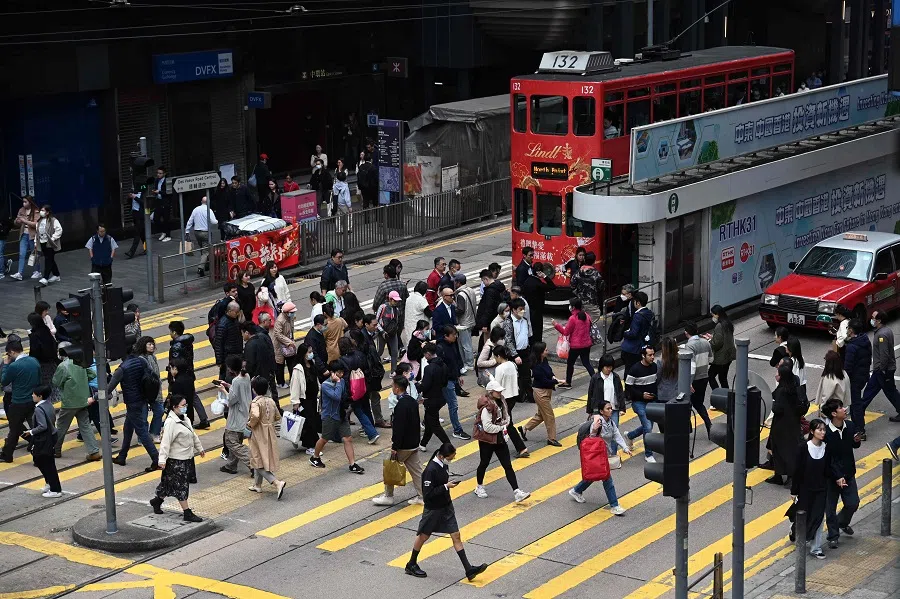
I have also never forgotten the time when I was part of a procession on Hong Kong island in the middle of a drizzle, the day after the handover of Hong Kong in 1997. Deep down I wanted Hong Kong to have a better tomorrow, but there was a nagging feeling that this could herald the end of an era. Thus, I went to Hong Kong alone and participated in the procession.
To my surprise, I ran into a few colleagues from Lianhe Zaobao at the procession. The event had nothing to do with race or religion, but we had all participated in "other people's politics" - in today's official narrative, we should not have done so.
But should that be the case? Similarly, I felt that I did not let myself down and even today I can proudly tell my Hong Kong friends, "My first and only procession was dedicated to you guys!"
Not letting my young self down
Because I was exposed to politics at an early age, I was better at completing my history lecturer's "cultural revolution" assignment than my peers and aced my East Asia history exam. But these are not the real benefits - it is that going forward, I tend to have a more thorough understanding of the rights and wrongs of historical events and am less likely to be fooled by lies and insincerity.
In some circumstances, I am even able to read between the lines more easily. For example, when I watch Chinese film director Zhang Yimou's Coming Home and One Second, I am always able to more intuitively understand the bitterness and the indescribable and metaphorical distortions of human nature that cannot be captured on film, especially the criticisms of power that have to be lightly put aside, or even cut off, for "technical reasons".
... we should not be afraid of youths being exposed to politics and searching for truth in history at an early age.
At the end of the day, the point is that we should not be afraid of youths being exposed to politics and searching for truth in history at an early age. These are lessons that must be learned, and exposure to and learning about them is not brainwashing. The youths could even be less susceptible to brainwashing as a result.
But if one intentionally creates a "greenhouse" and bans everyone from talking about sensitive topics - putting aside the fact that it is almost impossible to "not see, hear or speak" - the outcome is likely a collective decline in immunity. If that happens, when others initiate cognitive warfare and the influences from different camps become overwhelming, most people may not be able to discern and resist them, and will be easily led astray.
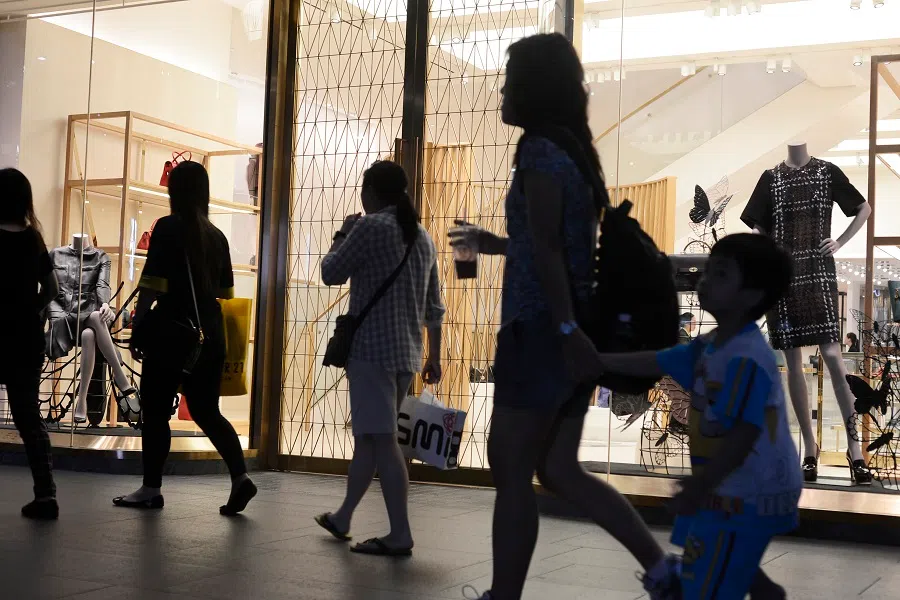
People who care about politics normally have a sense of justice. This is a quality that urgently needs to be recognised. Its flip side is indifference and self-centredness.
A sense of justice and the urge to seek knowledge and truth are mutually nourishing. After youths acquire some knowledge of things, a sense of justice is born and they will in turn want to know more. And with that comes the desire to act, or at least speak out, especially on behalf of the helpless. Contemporary youth activists have various demands, from environmental protection and animal rights to LGBTIQA+ rights. I think that the least controversial among them is the fight against oppression.
While their fight may be futile and their means not necessarily reasonable, it is oftentimes their sense of justice, sincerity and the fearless display of their youthfulness that should be valued. Or would you rather want your future generation to be obsessed with their grades and entertainment, and with protecting their own interests at all costs?
Thus, when they participate in seminars discussing wars and oppression, learning from one another, speaking up on the internet and even parading on the streets, there is no need to be too alarmed or critical.
A famous couplet from the late Ming dynasty hanging in the Donglin Academy in Wuxi reads: "In my ears are the sounds of the wind, rain and books; of my concern are the affairs of the family, state and world."
Today, a hilarious modified version has gone viral: "The wind, the rain and the books are making sounds, but not me; there are happenings in the family, state and world, but they are none of my business."
If all of our youths are like that, can we still laugh about it?
This article was first published in Lianhe Zaobao as "那些为正义发声者,和"关我屁事?"".
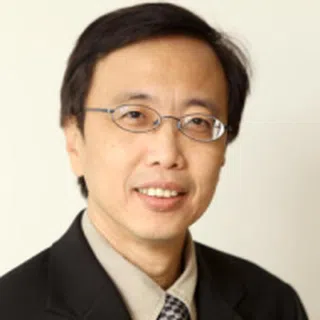


![[Big read] When the Arctic opens, what happens to Singapore?](https://cassette.sphdigital.com.sg/image/thinkchina/da65edebca34645c711c55e83e9877109b3c53847ebb1305573974651df1d13a)
![[Video] George Yeo: America’s deep pain — and why China won’t colonise](https://cassette.sphdigital.com.sg/image/thinkchina/15083e45d96c12390bdea6af2daf19fd9fcd875aa44a0f92796f34e3dad561cc)
